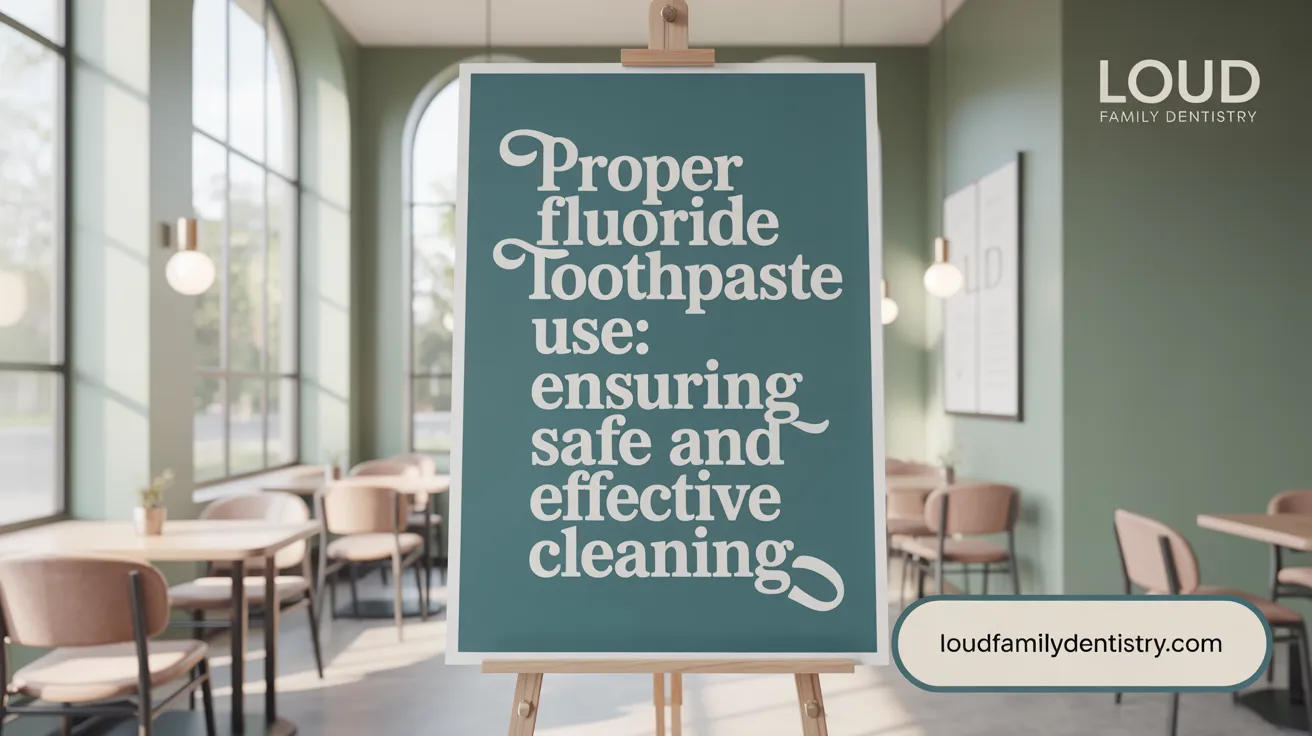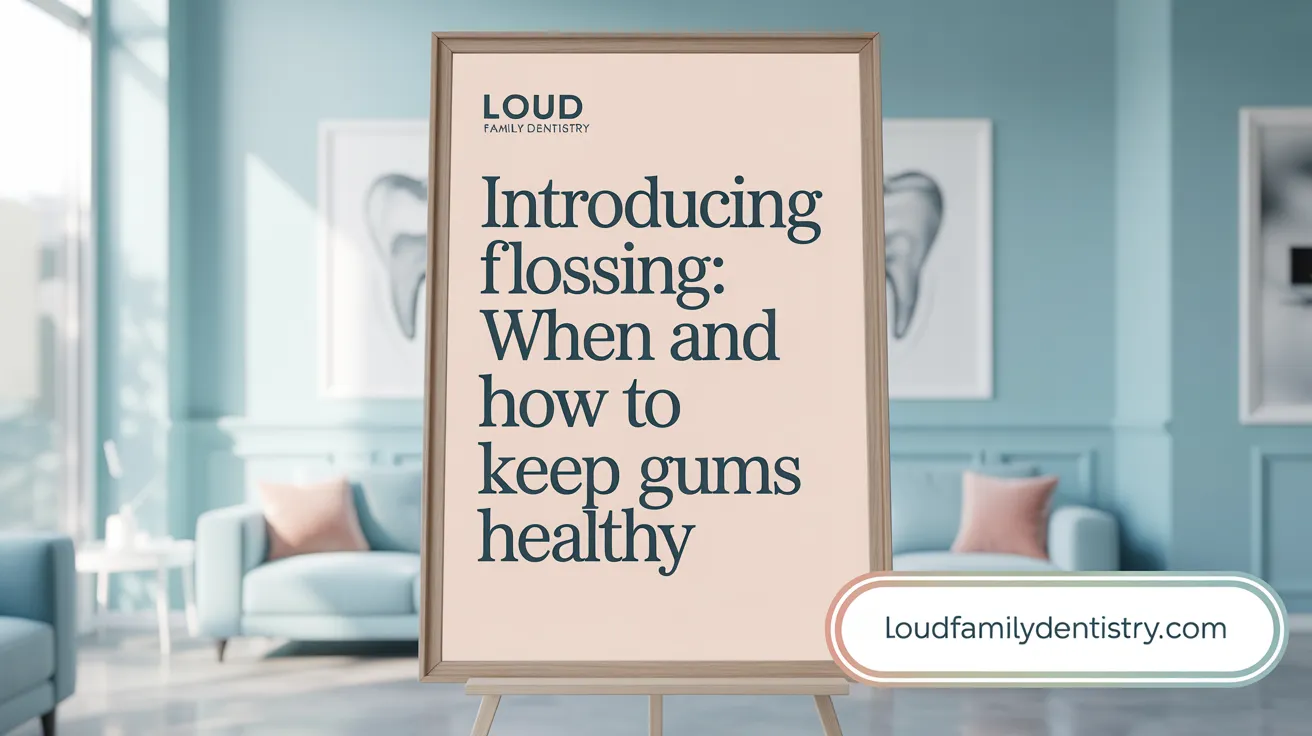The Foundation of Lifelong Oral Health
Starting oral care early in a child's life is critical for preventing common dental issues like cavities and fostering lifelong healthy habits. With over half of children aged 6 to 8 experiencing tooth decay and untreated cavities potentially impacting eating, speaking, and learning, understanding pediatric dental care is essential. This article outlines practical tips and evidence-based strategies to encourage good oral hygiene practices in children, ensuring they develop bright, healthy smiles.
Early Oral Hygiene: Laying the Groundwork Before the First Tooth

When should oral care begin for children?
Oral care should begin even before the first tooth erupts. Gently wiping a baby's gums twice daily with a soft, damp cloth helps remove bacteria and sugar residues that cause cavities. This early routine can establish good oral health habits and reduce the risk of tooth decay later on. For more details, see oral health tips for children.
How should parents clean a baby's mouth before teeth appear?
Parents can clean their infant's mouth by using a soft washcloth or a baby toothbrush to gently wipe the gums. This simple practice maintains hygiene before teeth emerge and removes harmful bacteria that might lead to cavities. Learn more at Healthy mouth for kids.
When should brushing with a toothbrush and fluoride toothpaste start?
Brushing should start as soon as the first tooth appears—often between 6 and 10 months of age. Use a small, soft-bristled toothbrush with a tiny smear of fluoride toothpaste. Parents should assist in brushing to ensure thorough cleaning while preventing swallowing excessive toothpaste. See guidance in good dental habits for children.
The role of parents and caregivers in early dental hygiene
Parents and caregivers are critical in establishing early oral hygiene routines. They should supervise brushing, make it enjoyable, and maintain consistency. Starting dental visits by the child's first birthday supports early detection and reinforces healthy habits. By leading by example and providing gentle care, parents help set the foundation for lifelong dental health. For comprehensive advice, visit Tips for Encouraging Healthy Oral Habits in Children.
Preventing Cavities: The Role of Fluoride and Sealants

How does fluoride protect children's teeth?
Fluoride plays a crucial role in protecting children's teeth by strengthening tooth enamel. It makes enamel more resistant to the acids produced by cavity-causing bacteria. When fluoride varnish is applied to primary teeth, it can prevent about 33% of cavities. Additionally, daily brushing with fluoride toothpaste further reduces the risk of cavities by promoting enamel remineralization and inhibiting bacterial activity.
What community measures help reduce cavities in children?
Community water fluoridation is a widely recognized public health measure that helps reduce cavities among children. Children who live in communities with fluoridated tap water experience fewer cavities compared to those living in non-fluoridated areas. This widespread and cost-effective approach strengthens enamel from an early age and supports oral health across the population.
What are dental sealants and how effective are they?
Dental sealants are thin, protective coatings applied to the chewing surfaces of the back teeth (molars). These coatings act as barriers, shielding enamel from plaque and acids that cause cavities. The application of dental sealants can prevent about 80% of cavities in these susceptible teeth, providing protection for several years and significantly lowering cavity risk.
Guidelines for fluoride toothpaste usage
Parents should begin brushing their child's teeth with a smear of fluoride toothpaste as soon as the first tooth appears. For children under 3 years, a tiny smear is recommended to minimize swallowing risk. From ages 3 to 6, a pea-sized amount should be used, and parents should supervise brushing to ensure proper technique and prevent excess ingestion. Brushing twice daily with fluoride toothpaste is essential to maintain enamel strength and prevent decay.
Establishing Positive Daily Routines for Oral Hygiene

What is the recommended brushing routine for children?
Children should brush their teeth twice daily, ideally after breakfast and before bedtime, for at least two minutes each session. For children under 3 years old, a small smear of fluoride toothpaste is recommended to protect teeth without risking fluoride overuse. From ages 3 to 6, a pea-sized amount of fluoride toothpaste should be used. Parental supervision and assistance are crucial until children develop the coordination and understanding for proper brushing, usually around age 6 or 7 (supervising children's brushing).
How can parents encourage consistent brushing habits?
Parents can encourage regular brushing by making the experience enjoyable and engaging. Using character-themed toothbrushes featuring favorite cartoon characters or vibrant colors helps spark children's interest (making brushing enjoyable). Fluoride toothpaste with child-friendly flavors adds appeal. Incorporating music, fun timers, or brushing songs transforms the routine into a playful activity. Positive reinforcement methods such as praise, sticker charts, or small rewards motivate children to maintain their oral hygiene habits effectively (positive reinforcement for brushing).
When and how should flossing be introduced?
Flossing should start as soon as two teeth begin to touch, typically around ages 2 to 4 (introducing flossing at age 3 to 4). At this stage, parents need to assist children in flossing to ensure correct technique and thorough cleaning between teeth. This help should continue until about age 10 when children can master flossing independently. Early introduction and consistent practice aid in preventing cavities and promote healthy gums (helping children with flossing.
By establishing structured, enjoyable daily oral care routines with proper guidance, parents can set the foundation for their children's lifelong healthy smiles (oral health tips for children).
Nutrition and Lifestyle Choices That Support Oral Health

How does diet influence children's oral health?
Children's oral health is closely linked to their diet. Consuming a balanced diet rich in fruits, vegetables, dairy products, and whole grains provides essential nutrients that strengthen teeth and bones. On the other hand, frequent intake of sugary snacks and drinks promotes the growth of cavity-causing bacteria, increasing the risk of tooth decay.
What are recommended beverage choices for young children?
Water fortified with fluoride is the best beverage choice for maintaining healthy teeth in children. Juice should be limited and avoided entirely before the age of 12 months. Importantly, children should never go to bed with bottles or sippy cups filled with milk or sugary drinks, as this practice can lead to early childhood cavities.
What lifestyle factors affect oral health?
Certain habits and exposures can negatively impact oral health. Prolonged use of bottles or sippy cups containing sugary liquids is a significant risk factor for tooth decay. Additionally, exposure to secondhand smoke has been shown to increase cavity risk in children. Avoiding these habits and exposures helps promote stronger and healthier teeth.
By adopting these nutrition and lifestyle recommendations—focusing on healthy eating, choosing appropriate beverages, and avoiding harmful habits—parents can play an active role in protecting their children's oral health and preventing cavities.
The Importance of Regular Dental Visits and Creating a Positive Experience

When should a child have their first dental checkup?
A child should have their first dental visit by their first birthday or within six months of the eruption of the first tooth. This early visit helps detect any dental problems early and establishes a dental home where ongoing dental care can be managed effectively.
Why are routine dental visits important for children?
Regular dental visits, ideally every six months, play a vital role in maintaining children's oral health. These visits allow dentists to monitor development, perform professional cleanings, apply fluoride treatments to strengthen enamel, and place protective dental sealants that can prevent up to 80% of cavities on back teeth. Early and routine care reduces the risk of untreated cavities that can cause pain, infections, and difficulties in eating and speaking.
How can parents help children feel comfortable at dental visits?
Dental anxiety is common among children but can be managed by creating a welcoming and reassuring environment. Parents and dental professionals can introduce the child to the dental office early to build familiarity. Using patience, gentle explanations, and comforting items like favorite toys can ease fear. Additionally, positive reinforcement before and after appointments helps children develop a healthy attitude towards dental care.
Role of dental professionals and community clinics
Dental professionals, including pediatric dentists, specialize in caring for children's teeth and provide education tailored to each child's needs. Community clinics often provide accessible, affordable dental services including preventive treatments like fluoride varnish and sealants. They also emphasize establishing a dental home early to promote lifelong oral health habits.
Building Lifelong Healthy Smiles
Encouraging good oral habits in children from an early age lays the foundation for a lifetime of dental health. Starting with gentle cleaning before teeth emerge, establishing fun and consistent brushing and flossing routines, applying preventive measures like fluoride and sealants, maintaining a balanced diet, and fostering positive dental experiences through regular checkups all contribute to preventing cavities and promoting overall well-being. Parents and caregivers play a pivotal role in guiding and supporting children as they develop these essential habits that lead to bright, confident smiles.
